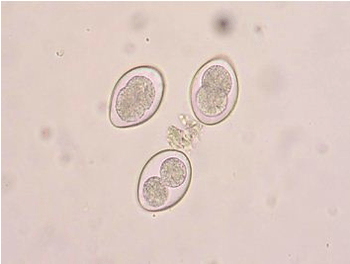COCCIDIAN INTESTINAL PARASITES AMONG CHILDREN IN AL-TORBAH CITY IN YEMEN: IN COUNTRY WITH HIGH INCIDENCE OF MALNUTRITION
Keywords:
Children, Coccidian, Cryptosporidium, Cyclospora, Isospora, YemenAbstract
Objective: Diarrhoea is an important cause of malnutrition, morbidity and mortality among children in Yemen. Coccidian parasitic infections are an important cause of diarrhea in children particularly malnutrition and immune-compromised patients, but their investigations are rarely required by the treating physicians in apparently immunocompetent children. This study was aimed to find the prevalence of intestinal coccidian parasites in country with high incidence rate of malnutrition.
Methods: Between May 2016 and October 2016, 228 faecal samples from 228 selected school children in Al Turbah city, Taiz governorate, Yemen, aged between 6 and 15 years were examined using wet-mount preparations and formal concentration method then films stained by modified acid-fast staining. Also data of children were collected including demographic data, and sources of water. Findings of positive intestinal coccidian parasites were analyzed in relation with demographic data, and sources of water.
Results: The prevalence of Cryptosporidium species, Cyclospora species and Isospora belli were 75.9%, 45.6% and 1.75% respectively. There was significant association between positive of Cryptosporidium species and females (OR=2.1 times, P=0.01), and spring water source (OR=4 times, P=0.04), while there was no significant association between positive of Cryptosporidium species and others factors studied. Also there was no significant association between positive of Cyclospora species and Isospora belli and children sex, age groups, or different sources of water.
Conclusion: In conclusion the study highlights the high prevalence of coccidian parasites among immunocompetent school children in Yemen. The clinicians in Yemen need to be aware that coccidian parasites are a potential cause of childhood diarrhea even in immunocompetent children.

Peer Review History:
Received 5 June 2019; Revised 19 July; Accepted 28 August; Available online 15 September 2019
Academic Editor: Ahmad Najib , Universitas Muslim Indonesia, Indonesia, ahmad.najib@umi.ac.id
, Universitas Muslim Indonesia, Indonesia, ahmad.najib@umi.ac.id
Reviewer(s) detail:
Asmaa Ahmed Mohamed Ahmed Khalifa , Pharos University, Alexandria, Egypt, asmaa.khalifa@pua.edu.eg
, Pharos University, Alexandria, Egypt, asmaa.khalifa@pua.edu.eg
Dr. Hayriye Eda Şatana Kara , Gazi University, Turkey, eda@gazi.edu.tr
, Gazi University, Turkey, eda@gazi.edu.tr
Downloads

Published
How to Cite
Issue
Section

This work is licensed under a Creative Commons Attribution-NonCommercial 4.0 International License.









 .
.